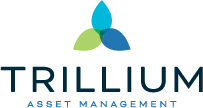Please try the following to find what you’re looking for:
- Check your spelling
- Try different words or word combinations (E.g. "fund form")

Considering climate as part of our investment process
A multi-boutique approach to considering climate
Each of our Asset Management and Wealth Management businesses has its own investment philosophy and approach to managing climate risk and opportunities for our clients.
Consideration of financially material environmental, social and governance (ESG) issues is integrated into investment analysis, decision making and ownership practices in the context of each of our businesses’ investment approaches and the needs of its clients.
Learn more about our boutiques' approaches to considering climate
|
|
As a long-term investor, the Barrow Hanley team looks for opportunities to engage in constructive dialogue with companies to improve ESG performance, including on climate-related issues. Barrow Hanley believes setting a science-based target can be an important measure of the commitment a company is making to demonstrate progress toward a low carbon future.
The proprietary Barrow Hanley Composite ESG Score is a key element of their investment process, using a weighted average of the scores from the firm’s analysts, third-party ESG research and external reporting frameworks. Data on climate risks and carbon emissions informs the firm’s climate pathway analysis and reporting to clients.
The energy team at Barrow Hanley apply a discount rate of 2%, which equates to a shadow carbon price of US$50 to US$75 (A$76 to A$114)*, when valuing energy and utilities holdings as those sectors will be more exposed to future regulation that leads to a higher carbon price.
For more information visit: www.barrowhanley.com/barrow-hanley-responsible-investing
*A conversion rate of AUD:USD – 0.66 at 30 June 2024 has been used.
|
|
At J O Hambro, fund manager independence is at the core of the firm’s culture. While climate change and the need to transition to a low carbon economy are considered in all funds, how evidence is framed, analysed and interpreted differs from one fund to another, according to their investment objective.
Tools and partnerships have, however, been developed to assist across J O Hambro’s funds, including the probabilistic emissions projection model, Horizon. The Horizon model projects a company’s emissions, after their carbon reduction pledges are accounted for, and evaluates the likelihood of reaching the target that they have set. These projections also incorporate other factors such as government regulations, industry initiatives and consumer and investor pressure. This is available to all fund managers to provide them with visibility over the carbon trajectory of their portfolios and individual stocks.
J O Hambro also has a multi-year partnership with the University of Exeter’s Global Systems Institute and Business School, providing the latest research on global systems risks related to climate change and sustainability.
For more information visit johcm.com/uk/sustainability
|
|
The Perpetual Australian Equities team has developed a proprietary net zero scoring framework to assess climate-related risks and opportunities for listed companies. At a portfolio level, portfolio carbon reporting is provided to portfolio managers, and portfolio stress testing is conducted to estimate the earnings impact of different carbon price scenarios. The framework covers all stocks in the ASX 300 and, includes smaller, micro and offshore stocks within their investment universe. There is now the option to compare companies more easily and to access additional independent data sources and external ratings.
For more information visit: perpetual.com.au/asset-management/
|
|
ESG risk management, including assessment of climate-related risks, is undertaken within each investment team at Pendal. Investment teams actively consider climate-related risks and acknowledge that the escalating nature of climate change is shortening the time horizons over which many of these risks are becoming financially material. Where climate-related factors may have an impact on the financial or non-financial performance of the company, it is factored into the investment decision making.
Pendal has a proprietary climate tool, developed in partnership with Regnan. This tool aids Pendal investment teams to compare and evaluate the emissions, carbon budgets and physical risks of investment holdings. It also highlights indicators of how companies are managing climate issues, such as if a company has an emissions reduction target or if there is management oversight of climate risks. A set of scores across key climate-related areas can then be used to identify companies with higher exposure, which warrant further investigation.
For more information visit: pendalgroup.com/about/investment-capabilities/responsible-investing/
|
|
Company-level consideration of climate risks within the Regnan Sustainable Value Assessment framework focuses on a company’s exposure to transition and physical impacts of climate change, and their response to that exposure. Factors taken into consideration include emissions profile, exposure to carbon regulatory schemes, strategic recognition of transition risks and opportunities, actions taken to mitigate transition risk and pursue transition opportunities, and monitoring of the evolution of transition exposures over time.
Regnan can now also incorporate the output from the Horizon climate model in the Sustainable Value Assessment (SVA).
For more information visit: regnan.com/
|
|
Trillium seeks to manage client’s assets in a way that mitigates climate change and accelerates the just transition, a key principle to ensure that the transition towards a climate-neutral economy happens in a fair way. The firm was also an early signatory of the Net Zero Asset Managers Initiative.
Trillium’s interim target is for 75% of the holdings of Trillium-advised larger cap-equity strategies to commit to set science-based targets for reducing their GHG emissions, as approved by the Science Based Targets Initiative, by the end of 2030. As at 30 June 2024, 67% of Trillium’s investments in larger cap equity strategies had committed to setting a science-based target. This is up from 15% on 31 December 2019, which is the baseline for the target.
Trillium’s investment process considers climate issues to be material across all economic sectors and incorporates analysis of these issues in the firm’s broadly diversified investment products. Climate risk assessment is integrated into the firm’s investment process at three different levels: security-specific analysis, portfolio construction considerations, and shareholder advocacy.
For more information visit: www.trilliuminvest.com
|
|
At TSW, climate risks, like other environmental and governance risks, are considered in the context of materiality and whether such risks are appropriately captured in valuation.
Similarly, as a bottom-up fundamental manager with a value discipline, the investment team often look for catalysts to help re-rate the stock where the market has not appropriately priced in such positive potential changes. If a company is engaging in business practices that are improving the climate, this could be a catalyst to unlock value and would be a consideration in the research mosaic. This would also incorporate a variety of other factors in-line with TSW’s consistently applied process and investment philosophy. Materiality of such risks and catalysts are therefore analysed where appropriate and relevant, and framed from the perspective of risk and reward.
For more information visit: www.tswinvest.com
Perpetual Wealth Management
Where the Wealth Management investment team hold direct assets, such as Australian Equities, ESG considerations, including factors such as climate change, green energy transition and natural resource scarcity, are considered as both an opportunity and risk when securities are selected.
As a multi-manager, a significant portion of the Wealth Management division’s investments are managed on behalf of clients by external investment managers. The division’s manager selection process incorporates ESG considerations as part of the due diligence of all investment managers. This analysis considers factors including processes, alignment, engagement and voting, net zero, thematic and impact objectives, and screening, for example.
The Wealth Management investment team has also been working to enhance reporting for its clients and has appointed a platform provider, EthosESG, to help provide this reporting across the multi-manager and direct equity portfolios.
For more information visit: https://www.perpetual.com.au/wealth-management/responsible-investing/
Case studies
View allThis information is general information only and is not intended to provide you with financial advice or take into account your objectives, financial situation or needs. You should consider, with a financial adviser, whether the information is suitable for your circumstances. To the extent permitted by law, no liability is accepted for any loss or damage as a result of any reliance on this information.
Each of the funds referred to above are issued by Perpetual Investment Management Limited (PIML) ABN 18 000 866 535 AFSL 234426. The product disclosure statement (PDS) and Target Market Determination (TMD) for each of the funds should be considered before deciding whether to acquire or hold units in the respective fund. The PDS and TMD can be obtained by calling 1800 022 033 or visiting our website www.perpetual.com.au. To view the Perpetual Group's Financial Services Guide, please click here.
No company in the Perpetual Group (Perpetual Group means Perpetual Limited ABN 86 000 431 827 and its subsidiaries) guarantees the performance of any fund or the return of an investor's capital. Past performance is not indicative of future performance.
The information on this website is intended for Australian residents or citizens who are currently located in Australia, or where expressly indicated, New Zealand residents or citizens who are currently located in New Zealand only and should not be relied on by residents or citizens of any other jurisdiction. By clicking the “Proceed” button below, you are agreeing to the Terms & Conditions of use.
Please read this information carefully as it governs your use of this website. Except as otherwise indicated, the contents of this website and the products and services are intended for persons residing in the United States, and the information on this website is only for such persons. This website is not directed to any person in any jurisdiction where its publication or availability is prohibited. Persons in such jurisdictions must not use this website. By clicking the “Proceed” button below, you are agreeing to these terms.
This information and the terms of use are subject to change at any time without notice. The contents of this website are intended for residents and citizens of the United Kingdom, and the European Union, and should not be relied on by residents or citizens of other jurisdictions. All investment products and services referenced in this website are managed and offered by either JOHCM or its affiliates within the Perpetual Limited group of companies ("Perpetual Affiliates"). By clicking the “Proceed” button below, you are agreeing to the Terms & Conditions of use.
This information and the terms of use are subject to change at any time without notice. The contents of this website are intended for residents and citizens of the United Kingdom, and the European Union, and should not be relied on by residents or citizens of other jurisdictions. All investment products and services referenced in this website are managed and offered by either JOHCM or its affiliates within the Perpetual Limited group of companies ("Perpetual Affiliates"). By clicking the “Proceed” button below, you are agreeing to the Terms & Conditions of use.







